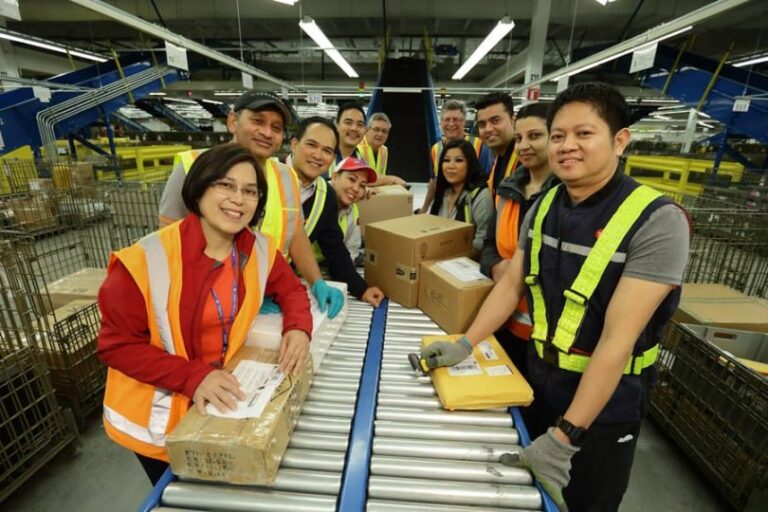How to Save Money While Job Hunting in Canada
Job hunting in Canada can be both an exciting opportunity and a financial challenge—especially if you’re new to the country. Between transportation, interview prep, and the daily cost of living, your expenses can add up quickly. The good news? With a little strategy and resourcefulness, you can conduct a strong job search without breaking the bank.
When I first arrived in Canada, everything felt new and full of promise. But after a few weeks of searching for the right job, reality set in. My savings were shrinking, and I knew I had to find smart ways to cut costs without cutting corners on my job search. The tips I discovered helped me stay on track financially and ultimately land a great opportunity—and now, I’m sharing them with you.
💡 Money-Saving Tips for Job Seekers in Canada
1. Use Free Employment Services
Canada offers a wide range of free, government-supported resources to help job seekers. These services include resume help, interview coaching, job matching, and even career counseling.
Where to start:
-
Visit your local employment or newcomer centre.
-
Check out Job Bank Canada, Indeed, Monster, and Glassdoor for job listings.
-
Explore YMCA employment programs, Service Canada centres, and provincial resources.
Bonus Tip: Some settlement agencies for newcomers also offer job readiness workshops tailored to immigrants and international students.
2. Network for Free (Or Close to It)
In Canada, networking is one of the most effective ways to find a job, and it doesn’t have to cost a dime. In-person and online networking can help you discover unadvertised jobs and make meaningful professional connections.
Free or affordable networking options:
-
Join LinkedIn groups and engage with posts in your industry.
-
Attend free events via platforms like Eventbrite, Meetup, and local chambers of commerce.
-
Check with community centers and libraries for free industry meetups or speaker series.
Pro Tip: Don’t underestimate the power of an informational interview—reach out to professionals on LinkedIn and ask for a short virtual coffee chat.
3. Make the Library Your Office
Canadian public libraries are underrated resources for job seekers. Most offer free Wi-Fi, computers, printing services, and even career-focused events.
What you can do at the library:
-
Work on resumes and applications
-
Practice video interviews
-
Attend free workshops on resume writing or career planning
-
Access premium job search tools like Lynda.com (now LinkedIn Learning), often free with a library card
4. Save on Transportation
Commuting to interviews or job fairs can get expensive. With some planning, you can reduce or even eliminate transportation costs.
Tips to lower your travel expenses:
-
Group interviews or errands into a single day to minimize transit trips.
-
Use public transportation instead of driving or taxis.
-
In major cities, explore bike-share programs or consider walking for shorter distances.
-
If you’re in school, take advantage of student discounts on transit passes.
5. Dress for Success on a Budget
First impressions count, but dressing professionally doesn’t mean buying designer clothes. You can still look polished while spending very little.
Where to find affordable professional attire:
-
Thrift stores, consignment shops, or local charity-run stores (like Value Village or Goodwill)
-
Facebook Marketplace, Kijiji, or Poshmark
-
Swap clothing with friends or roommates
-
Some non-profits, like Dress for Success (for women) or Career Gear, provide free professional outfits for job seekers
6. Boost Your Skills for Free
Upskilling can give you a major edge in the job market—and you don’t need to spend hundreds on courses.
Top free learning platforms:
-
Coursera, edX, Khan Academy, and FutureLearn
-
LinkedIn Learning (free via many public libraries)
-
Google’s Digital Garage or Grow with Google courses
-
Alison.com and Udemy Free Courses
Pro Tip: Look for short certifications or micro-credentials in project management, digital marketing, customer service, or software skills relevant to your field.
7. Apply for Financial Support Programs
While you’re job hunting, you may qualify for government financial assistance depending on your status in Canada.
Examples include:
-
Canada Workers Benefit (CWB)
-
Ontario Works or Alberta Works (provincial programs)
-
Employment Insurance (EI) if you’ve recently worked in Canada
-
Student financial aid or bursaries if you’re enrolled in further education
Reach out to a settlement or employment counselor to help you explore these options.
8. Cook at Home and Cut Unnecessary Spending
It’s tempting to grab takeout between interviews, but eating out regularly can quickly drain your budget.
Money-saving ideas:
-
Plan weekly meals and cook in batches.
-
Limit subscription services (e.g., Netflix, Spotify) during the job search.
-
Look for free entertainment—many cities offer festivals, concerts, or cultural events at no cost.
✨ My Personal Experience: Making Every Dollar Count
When I was between jobs, I treated saving money like a side hustle. I printed resumes at the library, bought my interview outfit secondhand for less than $20, and walked to local networking events. I also enrolled in free online courses to boost my skills in Excel and communication—both of which helped me in the interviews I landed.
Not only did I stay afloat financially, but I also became more confident, skilled, and focused as a result.
✅ Conclusion: Be Smart, Stay Hopeful
Looking for a job in Canada doesn’t have to mean watching your savings vanish. With careful planning and resourceful thinking, you can manage your finances and still conduct a high-quality job search. Use free local services, minimize daily expenses, and invest your time in learning and networking opportunities.
Remember, every smart decision you make now sets the stage for long-term success. Stay positive, stay persistent, and keep believing in yourself. Your dream job in Canada is out there—you’re just one smart step away from finding it.






